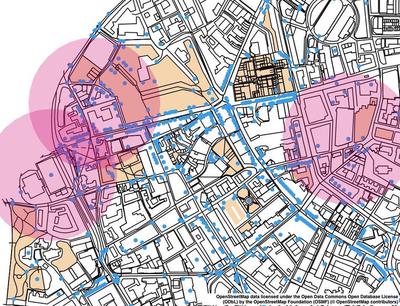Geospatial Databases and Information Retrieval
This module focuses on effective and efficient methods for handling geospatial information stored in a variety of formats and mediums. The last decade has seen a rapid expansion of the amount and type of data with little precedent in history. The ubiquitous presence of GPS and other location technologies has allowed the most diverse industries to generate vast amounts of data – just imagine the amount of data generated every single day by tracking the entire fleet of Uber drivers worldwide. The development of the internet, and in particular the emergence of social media platforms also led to a tremendous amount of text, image and videos being posted –well over a million geo-located tweets are posted every week in the UK alone.
To provide effective access to those volumes of complex and diverse information, traditional GIS formats and approaches are not always sufficient. Geospatial databases offer a solution to manage well structured, large datasets, whereas NoSQL technologies allow more flexibility to the detriment of efficiency. Whether to use and how to deploy either can have a severe impact on any application. Moreover, more complex information such as those stored in textual content presents further barriers to processing and analysis. In this module, we will address all those issues and explore solutions and challenges.
The practical sessions will focus on using spatial SQL databases and R to handle geospatial information. Topics covered in the lectures and practicals will include:
- SQL
- NoSQL
- Text mining, natural language processing (NLP)
- Geoparsing
- Location-based services
